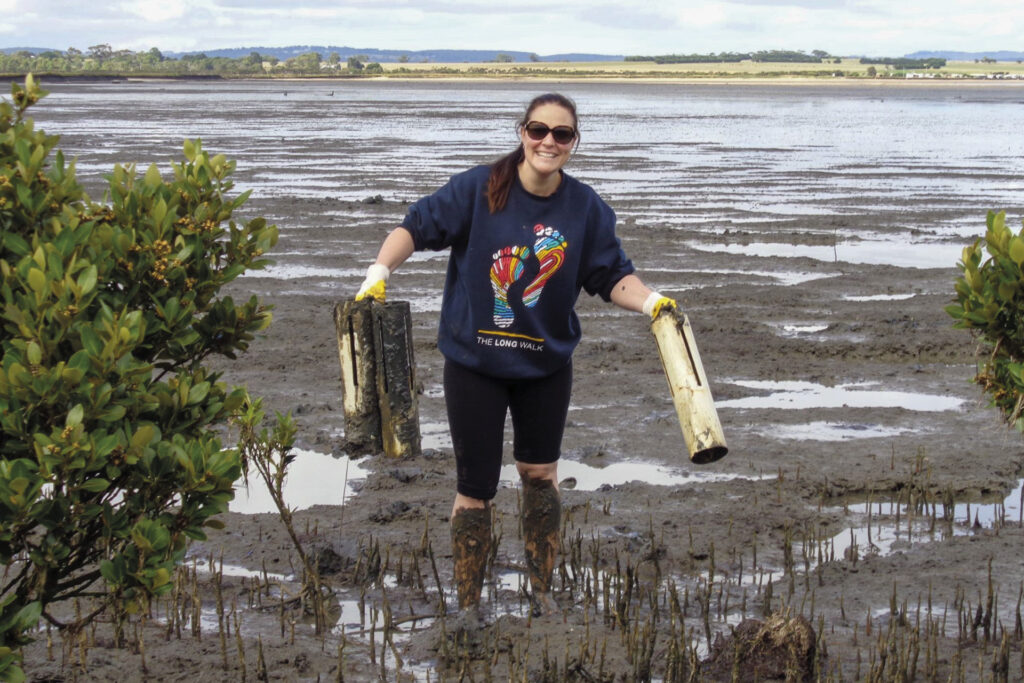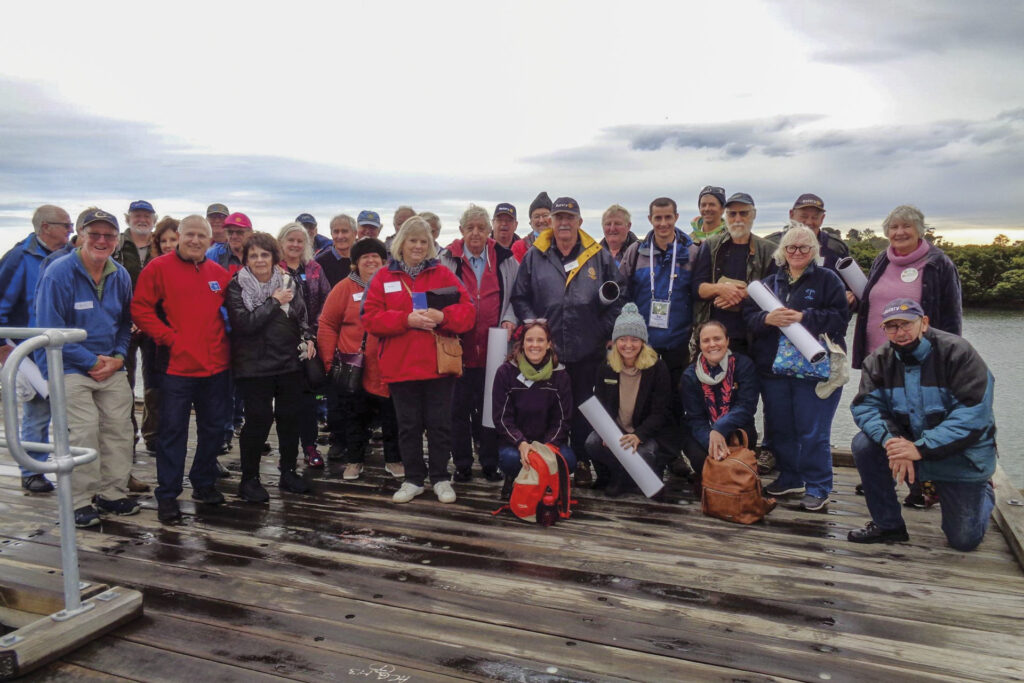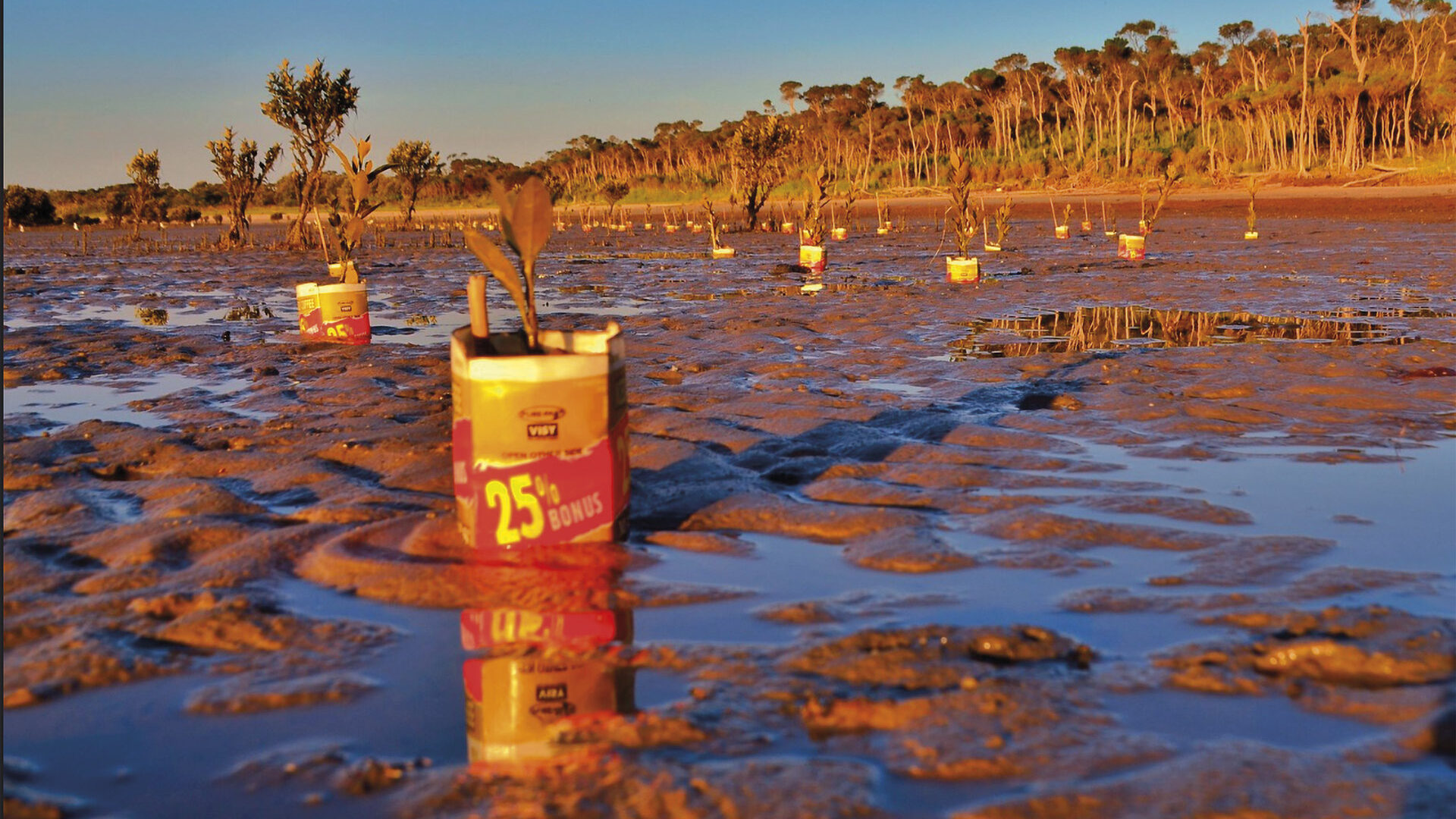The Western Port Seagrass Partnership, led by Rotarian Dick Cox, is working hard to restore the ‘forests of the sea’ for generations to come.
By Jack Campbell
Rotary International Immediate Past President Shekhar Mehta has taken on mangrove restoration as an international environmental project, with 10 countries currently joining the cause (see Rotary Down Under, May 2022, pages 12-13). The goal is to revitalise and restore coastline regions with mangroves to combat the effects of global warming.
Mangroves are essential in providing coastline protection, food security and livelihoods for millions. Perhaps most importantly, mangroves excel at capturing harmful CO² emissions from the atmosphere, making them crucial in the battle against climate change.

While Australia isn’t currently one of the 10 participating countries, we are still doing our part to restore these important ecological systems.
The Western Port Seagrass Partnership (WPSP) is an Australian initiative aiming to revitalise the ecosystem of Western Port, Victoria. The substantial loss of mangroves has had a devastating effect on the ecosystem in this area. The United Nations has recognised this loss as an ecological disaster, which was covered in their ‘World Atlas of Seagrass’ case study. The area is classified as a United Nations Biosphere, making it a learning place for sustainable development.
“The area is classified as a United Nations Biosphere, making it a learning place for sustainable development.”
The area once housed a thick layer of seagrass. By 1970, this ecosystem had disappeared due to an increase in sedimentation and urban/farming run off. This restricted sunlight for the seagrass, resulting in devastating loss. Now, with better farming practices and Melbourne Water’s efforts in operating sedimentation traps, the area has the potential to return to its former glory.
The Western Port Seagrass Partnership is taking advantage of this and working hard to re-establish a protective line of mangroves and seagrass that will serve to protect the coastline from erosion.

Dick Cox, of the Rotary Club of Somerville Tyabb, Vic, is spearheading the WPSP. He recently brought together volunteers from the Western Port Catchment to take part in a working bee to assist WPSP clean up the remains of some of the experiments. Rotarians from Berwick, Casey, Mornington, Warragul and Somerville Tyabb put their hands up to help.
“The working bee was followed up a few weeks later by an enjoyable boat trip across the north arm of Western Port,” Dick said. “There was a great line-up of speakers, including Rotary International Past President Ian Riseley, Vic Grosjean, DG Bill Degnan, CEO of the Western Port Biosphere Mel Barker, and, from WPSP Ian Stevenson, international seagrass expert Hugh Kirkman, and Dr Greg Parry conducting our mangrove experiments.”
Dick says WPSP will continue with their trials, ably supported by Rotarians, with seed collection taking place in December and January, followed by securing the seeds to stakes in areas identified by Dr Greg Parry.
“Our experiments have shown that, if protected, mangroves will flourish,” Dick said.
For more information on the Western Port Seagrass Partnership, visit seagrass.com.au
